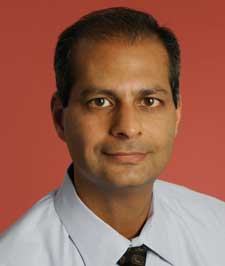|
Hemanshu Nigam, chief security officer for News Corp.’s Fox Interactive Media, oversees all safety, security, privacy and law enforcement programs for MySpace, the social networking site that has come under public criticism for allowing sexual predators to stalk minors. Nigam, who is from Kanpur, has championed safety milestones for MySpace, including the launch of Sentinel Safe, a technology that allows the company to block convicted sex offenders from accessing the website.
In his 15 years of experience, he’s served as a federal prosecutor for the U.S. Department of Justice, and advisor to a Congressional commission to the White House on online child safety.
Q. You’ve worked as a federal prosecutor specializing in child pornography and computer crime cases, and have also led security at Microsoft Corp. What are the special challenges of MySpace?
A: MySpace is facing all the kinds of challenges you face in any larger community in the physical world, any big city or large country with a lot of people. Any time you have that you have bad people coming in, trying to do things they shouldn’t do. MySpace is like a very large country or city – given that we try to do what any city does, which is to give our citizens the tools to protect themselves and get experts in safety areas to find out the best things we can do and then implement those changes on the site. And most importantly we work with law enforcement, so if things go wrong we can bring a bad guy to justice.
Q. How safe is it for people to put their information on to a very public space like MySpace?
A: We provide users with a range of tools to enable a safer online experience. For example, any user can designate a profile as private (and users under 16 are automatically assigned a private profile), block any other user from contacting them, conceal their “online now” status,and disallow users from emailing direct links to their images.
Q. What are the special signs that parents should watch out for?
A: More important than anything is that people remember what they already know in the physical world: they are the parents. Everyday they teach their children and teens about safety in the physical world. That teaching can be applied online in what I call the safety online dialogue.
Q. How does one do that?
A: Children don’t go into a mall and go up to a stranger and say “Hi, nice to meet you and let’s go and be alone somewhere.” So they shouldn’t do that on the Internet either. There are basic rules in the physical world that parents teach everyday and they apply very nicely in the online world. Parents have to remember whether it’s technologically complicated or not, it really doesn’t matter. They are still the parents and they can do this and they should do this. Ultimately, Internet safety is a shared responsibility. Talk to your kids about why they use MySpace, how they communicate with others, and how they represent themselves online.
Q. What is the biggest challenge of policing Myspace?
A: MySpace is one of the largest social networking sites in the world, we get over 330,000 new users signing up every day. I’m not a Star Trek techie I guess, but we’re moving at warp speed every single day, trying to implement new tools, new partnerships so that our community has the latest and greatest when it comes to safety.
Q. What are the trends to combat identity theft and spam?
A: Today we filed a suit against one of the largest spammers in the country. If it takes filing a federal suit to stop someone who violates the law and damages our members’ experience, then that’s what we’ll do. You are going to see a greater public and private partnership between government and private companies, because at the end of the day we want these guys to go to jail.
Q. How does it feel to be a cyberspace detective?
A: I actually think of myself more as a cyberspace safety strategist trying to find all the different things across the internet to bring safety to cyberspace, to bring my prosecutor experience and the technological Microsoft experience and combine it all in one place.
Q. Do you have regular office hours or is it a 24/7kind of job?
A: Actually I have both. I have regular office hours, but I also work 24/7!
Q. What part of India is your family from and when did they come here?
A: We are from Kanpur and all three of the children were born in India. My father was a math professor at IIT Bombay and he came here on a one year sabbatical to teach in Connecticut. That was in 1967 and he’s still teaching here, so the sabbatical lasted much longer – 39 years!
Q. Like many Indian parents, did they expect you to be a doctor or an engineer?
A: I think the thing to know, now that I am a parent, one of the things we have to recognize is our parents want what’s best for the children. I was going to be a doctor until my sophomore year in high school when I saw the movie And Justice for All – and the rest is history. My parents always say, “Do whatever makes you happy, but whatever you choose, make sure you do it the best you can.”
Q. What are your leisure time activities – surely not Internet related?
A: Being with my kids, whether it is soccer or hand ball against the garage door or chasing them around the house, playing catch.
Q. What are your favorite munchies when you’re glued to the computer, doing sentinel duty?
A: I’m always afraid of dropping something into the computer keyboard, so for me it’s drinking tea with cloves and cardamoms – that’s more important than anything when I’m at the computer!
|


